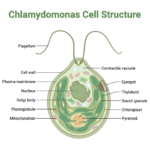AS and A Level Biology 55 Views 1 Answers
Sourav Pan🥇 GoldOctober 28, 2024
State that triglycerides are non-polar hydrophobic molecules and describe the molecular structure of triglycerides with reference to fatty acids (saturated and unsaturated), glycerol and the formation of ester bonds
State that triglycerides are non-polar hydrophobic molecules and describe the molecular structure of triglycerides with reference to fatty acids (saturated and unsaturated), glycerol and the formation of ester bonds
Please login to save the post
Please login to submit an answer.
Sourav Pan🥇 GoldMay 15, 2025
Triglycerides are non-polar, hydrophobic molecules, meaning they do not dissolve in water. This property makes them ideal for long-term energy storage in organisms.
Molecular Structure of Triglycerides
- Glycerol Backbone:
- A triglyceride molecule consists of a single glycerol molecule, which is a three-carbon alcohol with three hydroxyl (-OH) groups.
- Fatty Acids:
- Each of the three hydroxyl groups on the glycerol molecule can form a bond with a fatty acid. Fatty acids are long hydrocarbon chains with a carboxyl (-COOH) group at one end.
- Saturated Fatty Acids:
- Saturated fatty acids have no double bonds between the carbon atoms in their hydrocarbon chain, meaning each carbon is fully “saturated” with hydrogen atoms.
- They tend to have straight chains, allowing them to pack closely together, which makes them solid at room temperature (e.g., in animal fats like butter).
- Unsaturated Fatty Acids:
- Unsaturated fatty acids contain one or more double bonds in their carbon chain.
- The presence of a double bond introduces a kink in the chain, preventing tight packing. As a result, unsaturated fatty acids are often liquid at room temperature (e.g., in plant oils like olive oil).
- Formation of Ester Bonds:
- The formation of a triglyceride involves a condensation reaction between each hydroxyl group of glycerol and the carboxyl group of a fatty acid.
- In this reaction, a molecule of water is released, and an ester bond (-COO-) is formed between the glycerol and each fatty acid.
- This process is repeated three times, once for each fatty acid, resulting in a triglyceride with three ester bonds.
0
0 likes
- Share on Facebook
- Share on Twitter
- Share on LinkedIn




